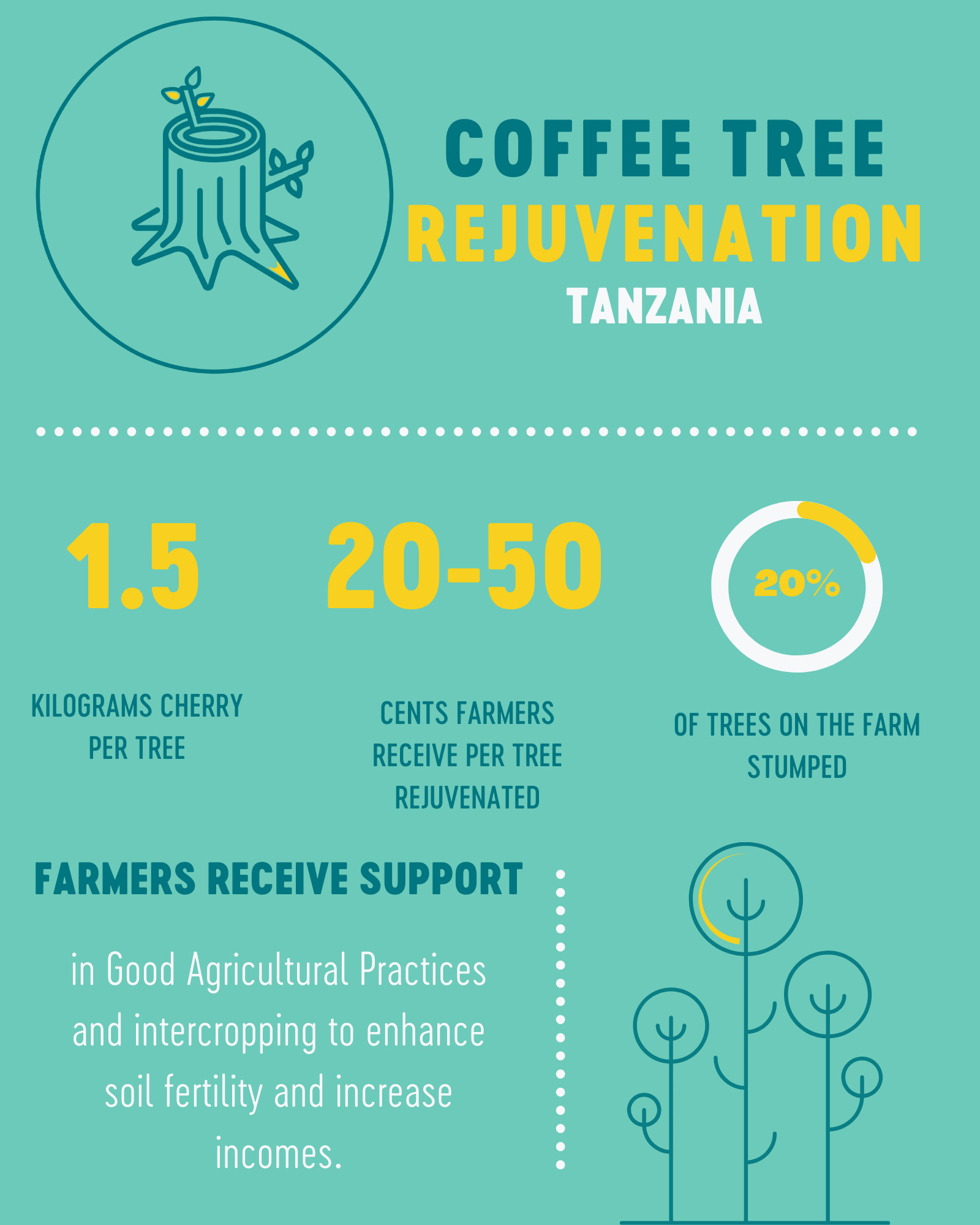Coffee Tree Rejuvenation in Tanzania
By buying our Korongo Sucafina Original from Tanzania, roasters are helping farmers in Tanzania triple their yields and increase their incomes through a wide-reaching tree rejuvenation project.
Coffee yields in Tanzania are low and smallholder farmers struggle to make a living income.

On average, smallholder coffee farmers in Tanzania have a yield of about 1.5 kilograms of cherry per tree. In comparison, farmers in Colombia have an average yield of about 3 kilograms of cherry per tree.
There are many factors that cause these lower yields in Tanzania. One of the driving factors is old rootstock. Older coffee trees typically have lower yields than younger ones. Even though farmers are aware that older trees bear less fruit, when farmers have very small plots of land with only a few hundred trees, it’s difficult to take a tree out of production for the 3 to 4 years it takes a new seedling to bear fruit. For many farmers who depend on income from coffee, it’s better to get a smaller yield from an older tree than no yield at all from a new seedling. Currently, the average yield for farmers in Tanzania is around 1.5 kilograms of cherry per tree.
To help farmers increase their yields and income, Sucafina in Tanzania is incentivizing rootstock rejuvenation and providing agronomic support to farmers. Using monetary supports and agronomic trainings, we hope to help farmers triple their yields. For farmers in the rejuvenation program, they will receive 20 cents per new seedling planted or 50 cents per tree stumped for up to 20% of their farm. Farmers will also receive seedlings to plant.
Farmers will receive trainings on Good Agricultural Practices (GAP) that are led by an agronomist. At the trainings, they will be encouraged to intercrop their farms with legumes. Legumes perform several important services for coffee farmers. Legume plants fix nitrogen – a key nutrient for coffee trees – and enhance the fertility of the soil. Legumes also provide an additional food source for the family, or an additional income source should they choose to sell the beans as a cash crop.
Related coffees: